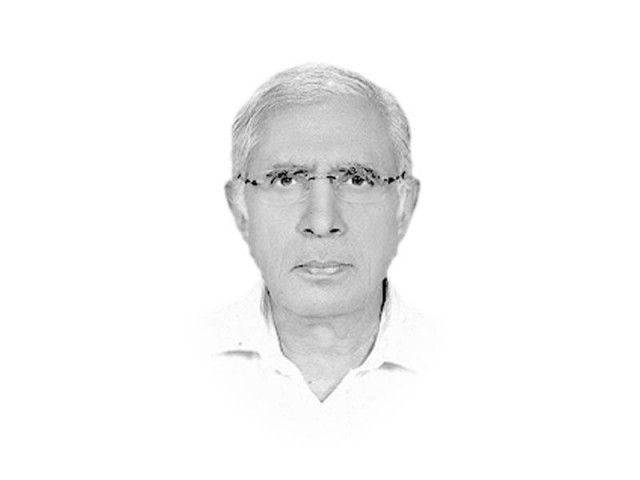One country, two economies
The official figures of GDP growth do not reflect the massive amount of black cash in circulation.

The writer is Executive Editor of The Express Tribune
Since the rich and the not-so-rich agriculturists do not pay any income tax, official statisticians simply have no way of knowing what happens to the cash in the hands of these agriculturists belonging to a sector which makes up 20 to 22 per cent of the economy. Even most of those belonging to the manufacturing sector, which makes up 25 per cent of the economy, are known to have been adjusting their incomes against barren lands they have purchased for just this purpose.
And, of course, most of the professionals, like doctors, lawyers, engineers, most self-employed persons, private hospitals and private educational institutions — which have mushroomed by the hundreds over the years, surpassing now by thousands the number of hospitals and educational institutions in the public sector — either do not pay any tax on their incomes or pay only a paltry sum.
And since the ruling elite, in collusion with the big business, has consistently nipped in the bud attempts to document the economy by opposing with religious zeal all attempts to introduce measures like the General Sales Tax (GST), the government is being deprived of billions in taxes annually from those operating in the legal economy as well.
Add to this the money made in bribes, smuggling and by over-and under-invoicing foreign trade. Power, water and gas are also pilfered by the big business and feudal aristocracy, which if monetised would also amount to billions of rupees lost to the formal economy. Obviously, the official figures of GDP growth of three to four, or even eight per cent, would not reflect this massive amount of black cash in circulation and the growth in the size of the black economy it finances.
A recent State Bank of Pakistan report has noted that the resilience of the informal sector appears to be pushing the formal economy forward. This reinforces the impression one gathered from a piece, “The secret strength of Pakistan’s economy” (April 5, 2012) by Naveen A Mangi of Bloomsberg Businessweek in which the writer tried to bring out the width and depth of Pakistan’s roaring black economy by interviewing persons who should know what they are talking about. Here are a couple of samples:
“ ‘Everything from auto parts to sports goods, knitwear, clinics and beauty salons fall into the informal economy,’ says Sayem Ali, country economist at Standard Chartered Bank in Pakistan. ‘All these make a significant contribution to employment and income, and that’s one reason why the economy is still growing.’
“ ‘The undocumented demand from Pakistan’s 179 million people means the nation’s purchasing power is more than estimated,’ says Nadeem Naqvi, managing director of the Karachi Stock Exchange. ‘Rising crop prices have pumped an extra one trillion rupees into the rural economy in the past four years, most of it undocumented,’ Naqvi says.
“Evidence of consumer demand is everywhere as new shopping malls and restaurants in Karachi are filled to capacity. Car sales rose 14 per cent in February from a year earlier, as more people could afford a Toyota Corolla or Suzuki Mehran (a small hatchback), according to the Pakistan Automotive Manufacturers Association ... ”
One hopes that the forthcoming Washington meeting between the IMF and Pakistan’s caretaker finance team would also consider the positive/negative impact of the parallel economy on the overall economic reality of the nation before discussing conditionalities for a new bailout package. And meanwhile, the security agencies would hopefully redouble their efforts to plug the holes through which criminals sitting in Gulf states are pouring into Pakistan weapons and black cash to finance the ongoing militancy in the country, so as to keep Pakistan from competing for the investment dollars going their way.
Published in The Express Tribune, April 17th, 2013.



1733130350-0/Untitled-design-(76)1733130350-0-208x130.webp)














COMMENTS
Comments are moderated and generally will be posted if they are on-topic and not abusive.
For more information, please see our Comments FAQ